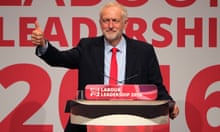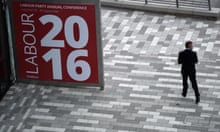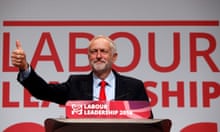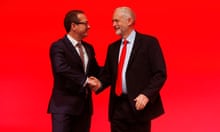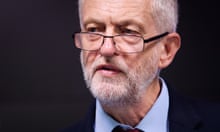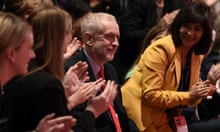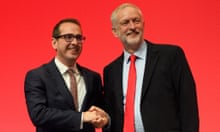Jeremy Corbyn’s election result has proved to be even bigger than a year ago, with the Labour leader commanding 313,209 votes – 61.8% of the electorate.
Overall, there were 654,006 people eligible to take part in the election as either full members, registered supporters who had paid £25, or affiliates largely through the trade unions. Of this total, 506,438 cast a vote. As Corbyn says, Labour is now the largest socialist movement in western Europe.
It is a movement that in 2016 has offered Corbyn its concerted backing across the board. He won 59% of the members’ votes (168,216), 70% of registered supporters (84,918) and 60% of affiliated supporters (60,075). That is not just a bigger victory for Corbyn than in 2015, it is a significant shift in the core membership.
Last year, in a win that shook up politics and delivered a shock to large parts of Labour’s Westminster operation, Corbyn secured 59.5% of the share in the first round, attracting more than 250,000 votes.
That win was driven primarily by registered supporters who were able to take part in the contest for the bargain price then of £3. More than 100,000 signed up, with 83.8% backing Corbyn. What is often forgotten, however, is that the Labour leader fell just short of a majority among full members, winning 49.6% of their vote.
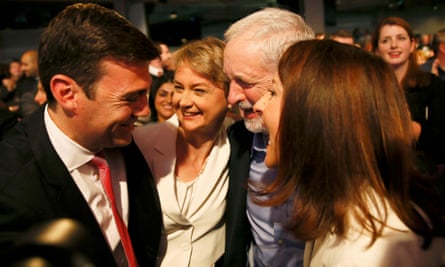
Although that still represented membership support at a scale more than double that of his closest rival, Andy Burnham, it was a figure that gave Labour rebel MPs hope when they triggered their challenge earlier in the summer.
They believed that perhaps nine months of Corbyn’s leadership – which they considered to be chaotic and incompetent – followed by an EU referendum result that was bruising for a majority of Labour members, might just swing the outcome. They couldn’t have been more wrong.
Owen Smith’s tactic, to argue that Corbyn was not the “only socialist in the village” and that he too was a signed-up supporter of anti-austerity policies, missed the mark. His claim that Corbyn was a good man but was unelectable at national level was simply not enough to persuade the Labour faithful.
Smith’s team are disheartened, but will seize on any evidence that might show there is more than one story to be told in 2016. His supporters were quick to point out that his 193,229 votes meant he received more support than Andy Burnham, Yvette Cooper and Liz Kendall combined in last year’s contest – a testament in part to Labour’s ballooning membership.
One other piece of evidence that will be raked over by the “modernisers” who wanted to topple Corbyn is a YouGov “exit poll” commissioned by the psephologist Ian Warren.
The poll predicted that Corbyn would win with 59% – reasonably close, although slightly below Corbyn’s actual result. It also suggested that the leader had performed particularly well with female members, securing seven out of 10 of their votes, and had hefty support among voters aged 25 to 50.
But, with the caveat that this was a poll and not an actual result, it also suggested that Smith was ahead in Scotland and among 18- to 24-year-olds, although they were just 11% of the total electorate.
More interestingly, the poll suggested Smith had the backing of a clear majority (it said 63%) of Labour members before May 2015.
If it is true that enough Corbyn-supporting members have signed up to the party between last year’s general election and January 2016 (the Labour cutoff for those taking part in this election) to swing the vote so dramatically, then Labour is now unquestionably a changed party.
Since then, another 130,000 people – largely thought to be sympathetic to Corbyn – have joined up, pushing the party further in his direction. Moreover, those within Labour holding more centrist politics could now leave the party if they are disillusioned by this even bigger result.
But Corbyn’s win, although convincing, still opens the door to a Labour party that is deeply divided. Large numbers of the almost 200,000 people who backed Smith were doing so in part not to make a positive statement for the candidate, but to cast their vote against the current leadership.
Their anger at Corbyn’s reign can be seen in the messages put out, and responses received, by people such as JK Rowling who think the party under his leadership cannot win a general election. Corbyn has earned an impressive internal mandate. Now he faces a much bigger electoral test.
